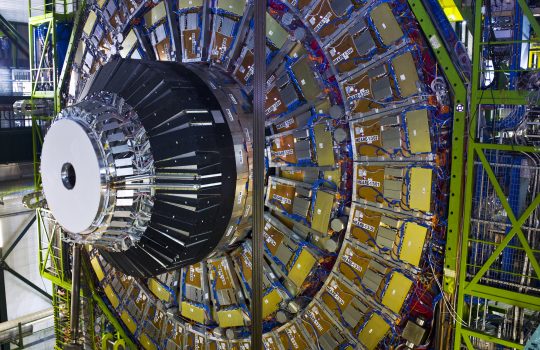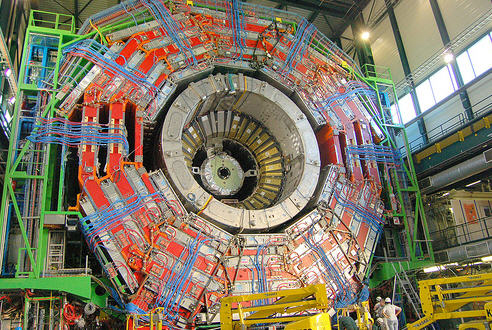Last piece of CMS detector lowered underground
Batavia, Ill. – Early yesterday morning (Jan. 22), scientists of the U.S. CMS collaboration joined colleagues around the world to celebrate the lowering of the final piece of the Compact Muon Solenoid detector into the underground collision hall at CERN in Geneva, Switzerland. The near completion of the CMS detector marks a pivotal moment for the international experiment, in preparation for the start-up of the Large Hadron Collider this summer. CMS has approximately 2,300 international collaborators. Supported by the Department…


